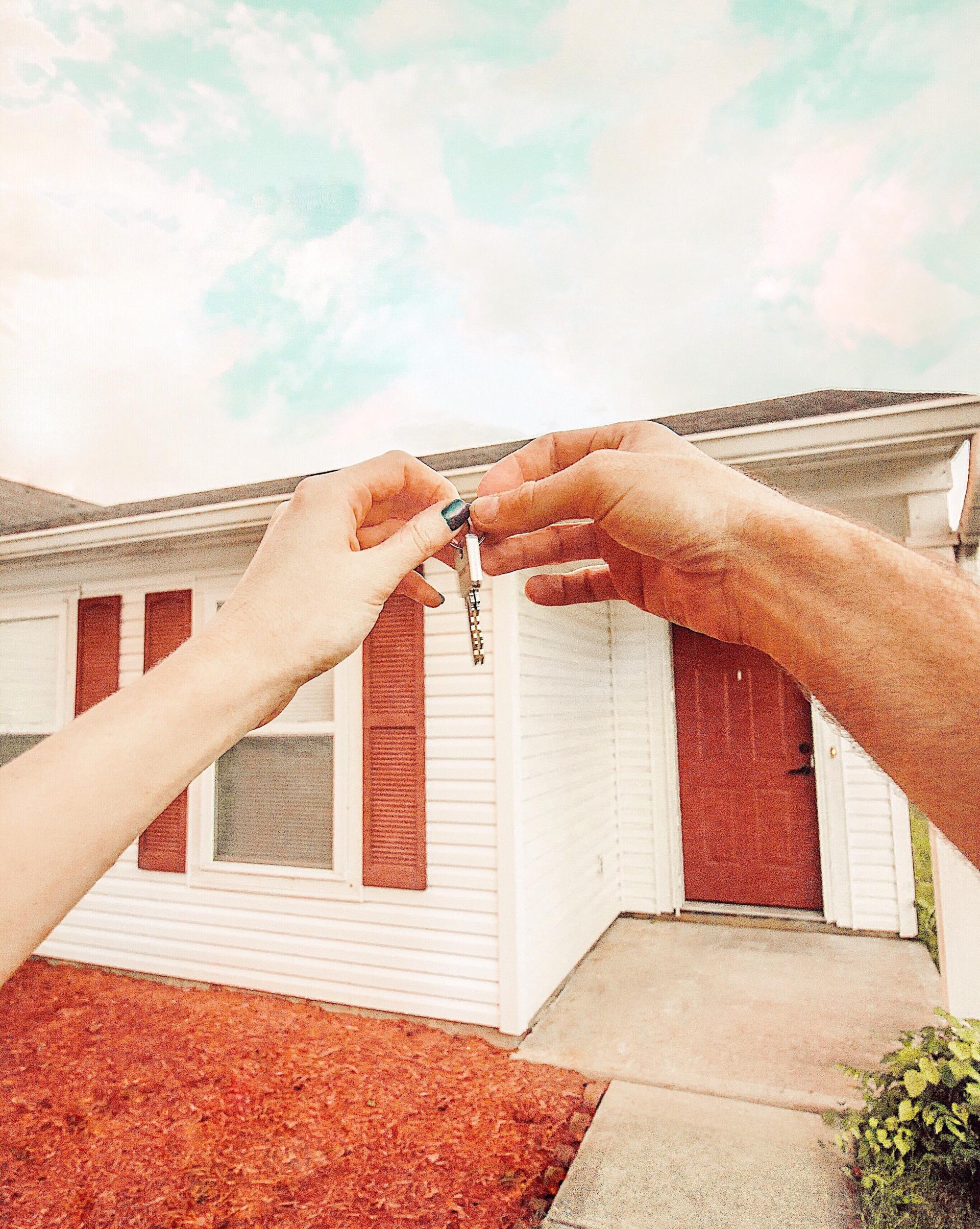How We Saved Money to Buy a House
Hi everyone! I did a poll on my Instagram story yesterday asking if you guys would like to see a blog post on how we saved money to buy a house, and I got an overwhelming 95% “YES, I’D LOVE THAT” from you all! You ask, I deliver. Keep reading for all of our money-saving tips that helped us buy a house as “young” newlyweds.
OUR FINANCIAL STORY
I think it’s important to share some background info on my husband and I before diving into this. We both attended four years at a private, expensive (yikes — AKA we took out loans) college. Like some of you, we didn’t enter the workforce right after graduating high school (though we did work part-time while in school), so our true incomes didn’t start until after we graduated college back in spring 2016. We’re in the beginning stages of our careers, and though we make good money to live a comfortable life, we don’t have “lofty” incomes by any means. By saying all of this, I mean we’re nothing close to trust fund babies and we made our house purchase solely on our own with our own income.
On our graduation day, we moved into a reasonably priced, one bedroom apartment and lived there for two years and four months. Staying on the lower end of our budget helped us save money for those two years. Though a two bedroom apartment would have been nicer, we agreed it wasn’t worth it to spend extra money on renting something that we couldn’t get money back on like a house would. We haven’t traveled outside of expenses-paid blog collaboration trips since our honeymoon in June 2017, so that helps as well.
WHAT BUYING A HOUSE REALLY MEANS FOR YOUR BUDGET
If you’re unsure whether you can afford to buy a house, speak with a loan officer to evaluate your financials. Based on your credit score and other factors, they will determine what kind of loans and the dollar amount of loans you qualify for. There’s a common misconception that you have to have credit cards to build good credit, and that’s not the case! I’ve never owned a credit card and don’t really plan to anytime soon (or maybe ever, I’m just not a fan!), but things like making auto-payments toward my student loans at a set amount every single month helps me have great credit.
When buying a house, the bulk of the money you’re saving and contributing to is for the down payment. The more you pay for the down payment, the less your monthly mortgage is going to cost. You also want to be sure you have money set aside for the inspection, closing cost, home insurance, etc., as well as any fix-up fees upon moving in.
Though some people put zero down when they purchase a house, we didn’t want to do that, and we didn’t do that. And when in this aggressive housing market, that may completely eliminate your chances of getting a house anyway, because the seller is going to pick what’s the best deal for them — and a huge part of that is how much you’re able to give them up front. By saying this, you may need to have a decent amount of money set aside to even compete in the market.
With all things considered, don’t buy a house just to buy it or because your friends are doing it. This is a huge financial commitment, even more-so when it’s your first, so be sure you’re doing it for the right reasons and that it’s the best choice for you financially.
OUR TIPS
Now into the nitty gritty — how did we do it? Here are all of our best tips for saving money to buy a house in your early-mid twenties, and beyond!
Define what’s important to you.
Buying a house has got to be more important to you and higher on your priority list then having brand new clothes all the time. If cable isn’t something you want that badly, don’t add it to your internet bill — you get the point. Determining where your priorities lie will help you filter your funds in a more ideal way.
Live below your means.
This is the biggest one I preach. Your financial output should be lower than your financial income each month. To help with this, this means being fully aware of every purchase you’re making, setting a budget if you need to and using more careful consideration when making purchases.
Cut corners when you can.
Buy generic sometimes, choose the brand that’s on sale vs. the one that’s not… you get the point. I think it’s good to evaluate where you’re not willing to cut corners in order to determine where you can successfully implement this strategy.
Eliminate the constant “treat yourself” mentality.
I think we’re all guilty of this at times! Sometimes I justify purchases in my head by telling myself I’ve worked hard and deserve it, and though that can certainly be the case and we all do “deserve” to treat ourselves now and then, don’t exercise this mentality all the time.
Don’t go out for lunch at work.
I used to go out for fast food all the time at my old job last year (probably an average of three times a week), and though I went to inexpensive places and didn’t ever buy much food per trip, that can add up over time. Make packing your lunch a priority and prepare it ahead of time if you feel like your mornings are too rushed. I think it’s totally fine to go out to lunch every once in a while (however, I think I’ve only went out for lunch at work a total of two times in the past year), but try to make it more of a special occasion thing. Also, cut out daily coffee purchases! I’m not a coffee drinker, but I know this is something a lot of people purchase every day and can easily be cut back on by making coffee at home.
Go shopping less, and when you do shop, only buy things that will contribute to you positively.
As a blogger (particularly in the fashion industry), there’s this huge misconception that all we do is shop and we never wear the same outfit twice. Wrong! Though I can only speak for myself, I definitely don’t live like this. Before making a purchase, determine if the item is going to genuinely contribute to your happiness and is something that could be useful to you for an extended period of time, therefore being worthwhile. If you don’t absolutely love the jeans more than any other pair you own, don’t buy them.
Pick up side work.
My blog and freelance work has been a great help in increasing my monthly income. Even if it’s just a little work here and there, it all adds up over time. If there’s a service you can provide outside of your full-time job (coaching, tutoring, freelance writing, designing, etc.), consider exploring it.
Be mindful.
If you’re not in a room, don’t leave the lights on. If you’re not using the water, turn off the faucet. This may sound dramatic or like a no brainer, but being mindful of these types of expenses and not racking up your bills helps you save money in the long run. My dad used to go around the house and dramatically count every single lightbulb my brother and I left on, so this was instilled in me at a young age for sure!
__________
That’s our story & all of our best tips! I did my best to touch on everything in this post, so I hope this is helpful for you. If you have any questions or would like any kind of additional advice, leave me a comment below or send me an email and I’d be happy to continue the conversation. As always, thanks for being here and check back for a new post on Friday!
Who’s excited for Riverdale’s season premiere tonight?!


